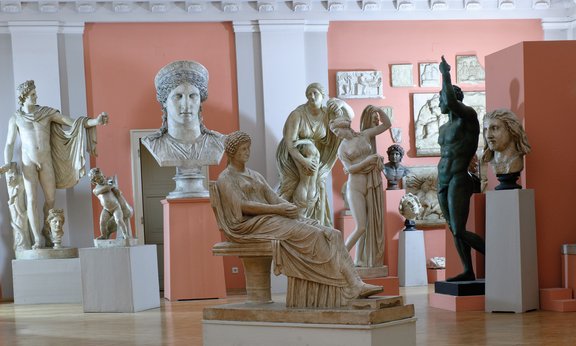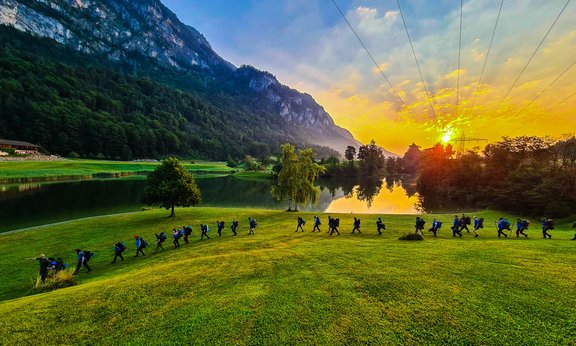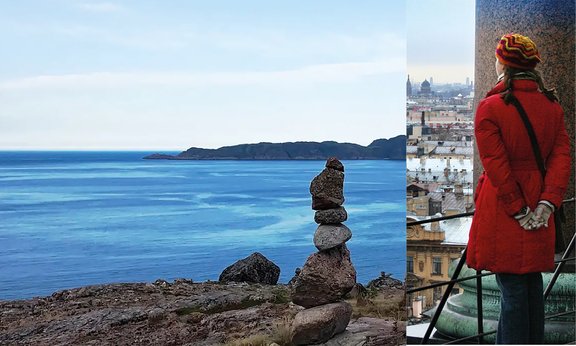Bachelor's Programme Archaeological Studies
You want to reconstruct past realities of all eras and you are interested in practical field research?
Archaeology is the study of the physical evidence of humans and society over time. An objective reconstruction of past realities is based on the investigation and analysis of archaeological records in the form of soil records and artifacts.
The students at the Department of Archaeology learn about and research all periods of international human history, unique across Austrian Universities.
Please note: the language of instruction for this programme is German.
Study code
UC 033 591
Supplemental Examination
Latin
Supplemental examination in Latin is required before completion of the bachelor's degree programme if this subject was not completed satisfactorily with at least 10 credit hours at a higher-level secondary school.
FAQ
In addition to a theoretical education, the university training of the students includes in particular applied methods for practical application in terms of a research-based education. Therefore an important focus lies on practical field research, i.e. prospection and archaeological excavations home and abroad as well as the preservation, restoration, scientific processing and subsequent presentation in museums of the findings obtained. The preparation, organisation, direction and execution of archaeological excavations and research projects, the independent processing of archaeological finding complexes, the writing of scientific manuscripts as well as public relations are taught.
Graduates are thus able to work out, evaluate and apply scientific developments as well as to interdisciplinary use their acquired skills. They have scientifically sound problem solving skills based on theory and methods.
Archaeology deals with the material legacy of man. Information is gained from the different tracks left by past events and actions. These include primarily archaeological sources in the form of soil findings and findings, the checking and scientific analysis of which with regards to their emergence, conservation and change, are the basis for an objective reconstruction of past realities.
While one focuses exclusively on material legacy for epochs without written language, the complementary analysis of objects, pictures and texts can be resorted to for epochs with denser traditions to gain illuminating insights.
The Department of Archaeologies at the University of Innsbruck covers - and this is unique in Austria – all epochs of human history for a wide area in research as well as in teaching and covers thus the period from the first appearance of man approx. 4 million years ago to the present time. Subareas are the archaeology of hunters and gatherers (Palaeolithic and Mesolithic / Old and Middle Stone Age), the ancient prehistory (Neolithic Age / Early Stone Age), the metal ages (Bronze and Iron Age), the classical archaeology of the Minoan and Mycenaean culture of Greece to the material heritage of the Greek and Romans and their neighbouring cultures to late Antiquity as well as the time of early Christianity, provincial Roman archaeology, prehistory and the archaeologies of the Middle Ages and modern times. The geographical focus lies on the Alpine area with the Roman provinces of Noricum and Rhaetia as well as Italy.
In terms of research-based teaching, the study programme serves in particular the practical training in the primary occupational fields and prepares for working at universities, other research institutions (academies), antiquities and monuments offices, museums and excavation businesses. Since the study programme promotes the understanding of social, economic, history and cultural-political processes, also professional work in the fields of tourism, art trade, archive and documentation, cultural management, journalism and publishing can be considered in addition to the actual scientific archaeological work.
- Science and research (universities, academies, research projects)
- Museology, collection and exhibition sector
- Preservation of monuments and cultural property protection
- Private archaeological service providers (excavation companies …)
- Tourism, cultural journeys, cultural education
- Art trade (galleries, auctioneers)
- Archive and documentation sector
- Public services (culture, education, diplomacy)
- Cultural management and public relations
- Journalism, press and media (print and audio-visual media)
- Publishing and book trade, journalism
- Politics, political consulting, law and economy, insurance companies
Graduates tracking: Shows which occupational fields students enter after graduation
Master's Programmes
More offers
Faculty of Philosophy and History Examination Office Information for students with disabilities
Curriculum
From the field
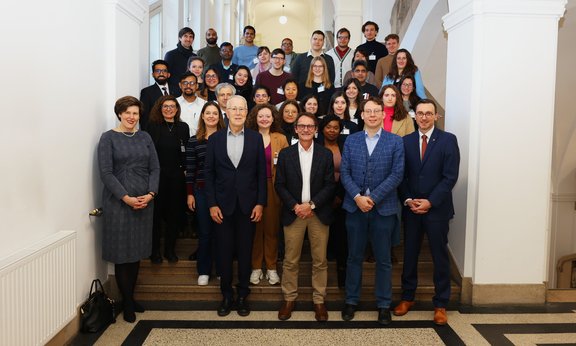
„Winter School on Federalism and Governance“ in 15. Runde
29 postgradual Studierende und Nachwuchsforschende aus Afrika, Amerika, Asien und Europa nehmen derzeit an der 14. Winter School on Federalism and Governance teil, die sich – ganz im Einklang mit dem Querschnittsthema „Nachhaltigkeit“ an der Universität Innsbruck - dieses Jahr dem Thema „Federalism and Sustainability“ widmet und unter der Schirmherrschaft des Europarats steht.

FWF fördert 6 Projekte
Bei der FWF-Kuratoriumssitzung im März wurden vier Einzelprojekte und zwei Esprit-Projekte von Wissenschaftler:innen der Universität Innsbruck bewilligt.

Marianne-Barcal-Preis 2023 vergeben
Seit acht Jahren wird der Marianne-Barcal-Preis jedes Jahr an Studierende der Universität Innsbruck verliehen, die sich durch hervorragende Abschlussarbeiten in den Fächern Zeitgeschichte, Politikwissenschaften, Geschichte sowie benachbarte Disziplinen ausgezeichnet haben. 2024 geht der Preis an drei Wissenschafter zu je 2.000 Euro Preisgeld.
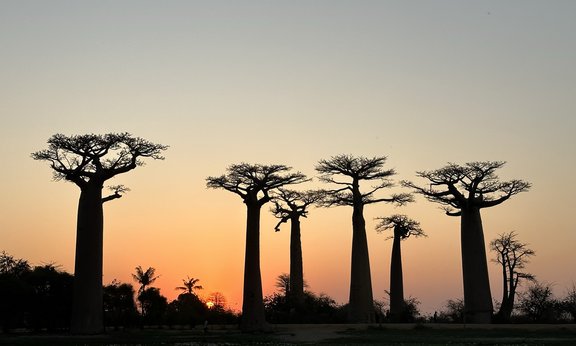
Madagaskar, Medien und Außenpolitik im Wald
Studieren ist mehr als Zuhören im Hörsaal: Student:innen gestalten Podcasts, fahren nach Madagaskar auf Exkursion, treffen Medienschaffende und helfen, die Leistungen des Waldes zu erhalten.
Related studies

English and American Studies (Bachelor)
Bachelor of Arts

Educational Sciences (Bachelor)
Bachelor of Arts

History (Bachelor)
Bachelor of Arts

French (Bachelor)
Bachelor of Arts

